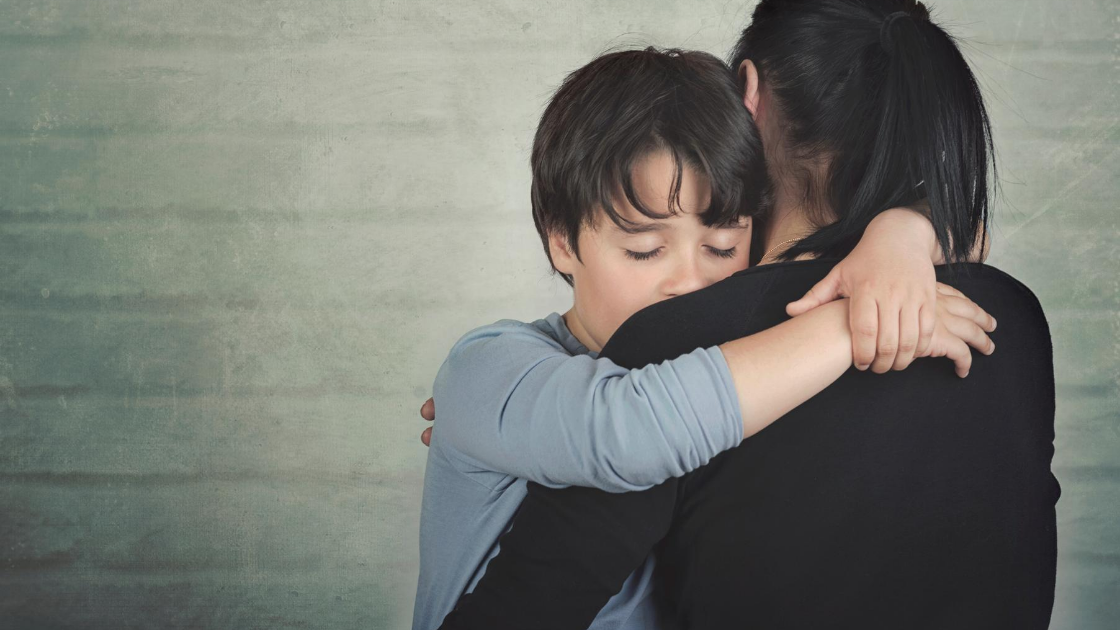|
One reason that divorce is so hard is because divorce has a stigma associated with it that other losses don’t have. When a spouse dies, what happens? Most likely the entire community comes out to support the widow or widower, setting up daily meals for them, dropping by with offers of help, hugs and thoughts and prayers. When a couple decides to divorce, there probably aren’t many offers of help. People may not know what to say or think that the person wants to be left alone. In some instances, the couple decide that they aren’t telling anyone possibly because they’re ashamed. This absence of support from the community is a key factor of why divorce is so difficult.
Because there is a stigma, there’s less awareness about the impact of divorce. Most people don’t truly understand what you are going through. Divorce is not just one loss, it comes with many losses. You lose your “intact family” – a mom, dad and children all together. You may lose time with your children. Any time away from your children is a loss and you feel it deeply. You also lose people – obviously your spouse/partner, your in-laws and possibly some friends. You may lose your financial security. You may also lose your place in your community or invitations to events that are only for couples. There are so many losses at once and the grief can run very deep. Most of my clients are surprised at just how difficult divorce is. They didn’t think it would be easy but never expected it to be this hard. The strong emotions of sadness, anger, denial, shame, fear and guilt are surprising to them. They tell themselves, “You shouldn’t feel this way. You need to be able to handle this better.” A woman shared with me that she went through cancer and it wasn’t nearly as difficult as her divorce. A friend apologized when she was going through her divorce because she felt bad that she didn’t help me enough through my divorce. She said that she never dreamed it was this hard. It’s one of the most difficult things you can go through. So how do you make it through your divorce? Get support!!! I can’t emphasize enough how important support is. Find an understanding friend, join a support group, find people who are going through divorce and can relate to you. I run a Facebook group - Separation and Divorce Support Community - which is a group of supportive people who are going through similar experiences. Get a therapist, divorce coach or other professional who can listen and guide you. The good news is you will get through it and when you do, you’ll realize how strong you are. Also, you’ll be empowered with your new life and all that you have to look forward to!
245 Comments
"I'm not like them" - how feeling different when going through divorce impacts your healing1/14/2020 “I’m not like them”
That’s the thought that many people have when they are going through a divorce. It’s particularly true if no one among your family, close friends, or neighbors have been divorced. You may know that 50% of marriages end in divorce but it still feels lonely if you don’t seem to know any of them. And it may be difficult to meet other divorced people if you feel ashamed that your marriage failed. You can become isolated and depressed which can make the transition from being married to being divorced much more difficult than it has to be. Remedies for shame and the resulting loneliness may be within reach. First, recognize that just because your marriage failed, you aren’t a failure. And, conversely, just because someone is married doesn’t mean they are a success. In fact, I would argue that getting divorced takes a tremendous amount of strength. It is not an easy process. Many choose not to do it and remain in marriages that are basically not functioning. Does that make them successful? No, it’s a lot more complicated than that. But clearly being divorced does not equate to being a failure. In many ways, it actually shows your strength. Recognizing your strength is important to combat feelings of shame. You can then have the confidence to reach out to others to make the connections you need when you transition through your divorce. Two connections that can be helpful is a therapist or a divorce coach. It’s important to find a therapist who specializes in working with individuals going through divorce. You can ask the therapist what their specialties are to see if they are experienced with divorce. Divorce coaches work with clients on a more practical level to develop goals and help them prioritize what is needed for the next chapter of their life. In addition to therapists and divorce coaches, connecting with others who have been through the divorce process is especially important. Supportive friends who understand how you feel make you feel less different and can help you move on in your life. But many find it challenging to find others who are divorced. So how do you find other divorced people? There are online support groups, meetups and in-person support groups through organizations that sponsor them. Although it’s scary to reach out, keep in mind that others are most likely feeling the same way. They may be very receptive to your friendship. It takes courage to reach out when you’re feeling vulnerable. Ask yourself, “What do I have to lose?” I recently started a closed Facebook support group for individuals who are separated and divorced. It’s called “Separation and Divorce Support Community”. I encourage you to take a look at it and see if it could be helpful to you. Here are some other ways to make connections and not be lonely:
Whatever you choose to do, remembering your strength will help you have the courage to make connections and combat loneliness. You will see that others are more like you than you thought. Give some of these ideas a try and let me know what works for you!! We can get provoked or “triggered” by many things – a fight with a spouse, a child who won’t listen, a boss who treats you badly, an aggressive driver, etc. Being triggered simply means that some event has impacted us emotionally and we have a difficult time reacting rationally. When we’re triggered, we do things that we shouldn’t do. We yell back at our spouse or child, we say something inappropriate to our boss, or we leave in a huff. How wonderful would it be if we could somehow, in the moment that we are triggered, find a way to detach?
One skill that you may have tried in the past when you’ve been triggered is deep abdominal breathing. Deep abdominal breathing is where you push your stomach out as you breath in and pull your stomach in as you breath out. This enables your lungs to expand much farther than if you take the typical “chest breath”. When you do it correctly and for long enough, your brain will release a hormone that will calm you. This calm will enable you to detach. Once you’re detached, you can respond logically rather than emotionally. Sometimes deep abdominal breathing doesn’t work. You try it and you’re still triggered and unable to detach. Grounding is another technique that can be helpful in these circumstances. Grounding is a type of coping strategy that is designed to “ground” you in or connect you to the present moment. You can only use grounding if you have given yourself some space from the person that you were interacting with. You can say that you have to go to the bathroom, ask them if you can talk about this a little later or find some other way to get to a separate space. Once you’ve gotten to a separate space, you can try these steps for grounding:
The key to being successful with these techniques is to practice them when you’re not being triggered. You can also make up your own method of grounding that enables you to distract and detach yourself from your emotions. Learning to detach is a powerful tool that can help you to be more successful in your communication skills and improve your relationships with your spouse, children, boss and anyone else important in your life. Let me know what techniques work for you! Divorce or separation can be devastating and can be an incredibly isolating experience. If you are going through a separation or divorce, don’t lose hope. There are a number of painful feelings that come along with separation and divorce, including depression, anxiety, a sense of loss, and a sense of guilt. All of these emotions can take a toll, but with the right people on your side, you can begin to heal. Thanks to online support groups, you can find help in a place and time convenient to you via a group of people who understand exactly how you feel. Here are 3 major reasons why you should join an online separated and divorced support group:
Joining a separated and divorced support group might seem intimidating at first, but when you think about it, it’s just a great opportunity to connect with like-minded people going through the same thing as you. I offer divorce support groups throughout the year. Please email [email protected] for more information. On average, 40% of all first marriages end in divorce, and over half of those families have children under the age of 18. When you add to that the 57% of millennials choosing to have children outside of a marital union, there are lot of parents who are not living under the same roof. Under the best of circumstances, raising a child is difficult, but when you’re divorced or not living together, it brings a lot of additional challenges.
Ideally, both parents share childcare responsibilities – and the quality of their co-parenting relationship can be characterized by the extent to which they support or fail to support each other. When parents fail to cooperate, it can have consequences for all involved. For years, research has shown that the quality of interaction between separated parents is a strong predictor of the mental health and psychological well-being of children living in this type of family structure and young children especially are at higher risk for anxiety, aggressive behavior, and poor social skills. If you can’t manage to get along, it can cause lasting mental and emotional problems for your kids. In such situations, having a support network is one of the best things you can do for yourself and your family. All parents going through divorce or separation need supportive people that they can talk to, so they don’t speak to their children about any ill feelings about the other parent. A therapist, a friend, a family member, a clergy member, or any supportive individual can make the difference between frustration and anger and learning how to manage your emotions. The following rules an help to build a healthy co-parenting environment:
Following these rules – even if you’re not on the same page as your ex - is a gift to your children. They will benefit tremendously from having a secure, reliable relationship with both parents. And if you find that you fall off the wagon sometimes, don’t beat yourself up - the rules aren’t always easy to follow. Admit to your child that you made a mistake, apologize and move on. The gift your child will receive is less anxiety and more stability, as you and your ex work together for their well-being. In today’s fast-paced, connected world, we often communicate via email and text. Remembering to update an ex on all events, conversations and decisions is important and requires organization and time. But failure to do so can lead to the breakdown of the co-parenting relationship and can negatively impact your children.
Luckily there are tools that are now available to help co-parents communicate more effectively. The app that I’d like to highlight is called “2Houses” which includes a calendar where every family member can view an online schedule. Parents can schedule recurrent activities like tennis lessons and special events such as birthday parties. The app has a finance tool that helps parents manage their children’s expenses. When a payment is needed for a doctor’s appointment, a reminder is sent to the parent in charge of that payment. A great feature is a wish list where each parent can suggest what should be bought for their children such as food or something needed for school. It even has an album feature where you can share pictures of your children with each other. Lastly, there is an info bank where you can share important contact numbers and addresses. If something is not communicated correctly, there can be serious consequences. Apps like 2Houses make it easier for co-parents to be on the same page. By using 2Houses, the chances of miscommunication is lessened and you and your children will benefit. When you are going through a divorce, you may feel hurt, guilty, alone, scared – a lot of very difficult feelings. Starting a new relationship is appealing because it can help you feel less lonely and it can provide support when it may be difficult to get support from others who don’t understand what you’re going through. However, relationships take time, energy and a lot of compromise. Thinking through what is best for you and your family will help you determine when to move forward with a new relationship.
Some things to consider when starting a new relationship after divorce:
Look into your situation and assess where you and your children are emotionally. This will help you determine if you’re ready for a relationship. There are parents who don’t consider starting a new relationship because they feel that they need to focus on their children. They feel that they can’t have a relationship at all until their children are out of the house. Although some may think that this is best for children, there can be some negative consequences to this. A parent who focuses primarily on their children may find that they don’t have any time to develop their own life, hobbies, interests, friendships or take care of themself. This works for young children as they want and need their parent’s undivided attention. But as children get older, they start to develop their own life, friends and activities. If their mom or dad is solely focused on them, the children may feel responsible for their parent’s happiness and feel guilty that they don’t want to spend all their time with the parent. There is a middle ground. You can have a relationship and your own life after a divorce while putting your children as a priority. One of the reasons to develop your own life outside of your children is that you are your children’s main role model. If you are happy and have a full life, it encourages your children to have that too. There is no one right or wrong answer. Think through what you want and take your time with every decision. Talk to a trusted friend or therapist to help you think clearly. Balance your own needs with that of your children. You know what is best for your children and for yourself. Have faith in yourself that if you take the time and space you need, you will come up with what will be best for you and your family. Marriage isn’t always easy and most, if not all, marriages go through ups and downs. The loss of a job, mourning the loss of a friend or parent or an illness can significantly impact a marriage. In some marriages, neither spouse ever considers divorce. But sometimes one or both spouses may think about divorce.
Thinking about divorce is very different from deciding you want a divorce. When you’re just thinking about divorce, you’re not ready to take that step. You may be very angry at your spouse or feel very hurt. You may realize that the stresses that you’re dealing with right now will not last forever. When you spend a night out with your spouse you may get along well and feel hopeful that things will get better. And many times things do get better. In general, unless you’re seriously thinking about divorce, you probably shouldn’t mention it to your spouse. Threats of divorce or leaving a relationship can be damaging to a relationship. If there’s a discussion about divorce every time there is a fight, that can make the relationship emotionally unsafe. Divorce is a loaded word and shouldn’t be overused. Once you say it, you can’t take it back. Most people who are seriously considering divorce have thought about it for a long time. But when do you talk about it with your spouse? It depends on a lot of factors. Is there abuse in the relationship? Are you concerned that your spouse may do something extreme if you have that discussion? Do you have children? Does your spouse react rationally to stressful situations? All of these things must be considered before you make the decision to talk to your spouse about getting a divorce. One way of navigating this process is to work with a professional – a therapist who can provide a safe place where you can discuss your feelings with your spouse. Ideally you can come to the decision together whether or not to get divorced. Although that’s not always possible, if you’re working with a therapist, you’ll have guidance about how to work together respectfully. You can avoid some post-divorce anger and misunderstanding. This is especially important if there are children involved because children are significantly impacted by their parents’ relationship. Many clients have difficulty with combining two families after divorce. They have children who are different ages, have different needs and personalities and they find it overwhelming and stressful. It’s not surprising considering how difficult it is raising children in intact families where there hasn’t been divorce!
Despite the difficulties, it is possible to have a happy family even if you have children from two different marriages. Some of the ways to make this situation successful are as follows:
These suggestions will help you develop a closer family when you have partners that have children from previous marriages/relationships. If these techniques don’t work, family counseling with an experienced therapist is an option. However, if you make children and your relationship a priority, respect boundaries and communicate effectively, you’ll be far along the way to having a happy blended family! For most parents, telling their children about the decision to divorce is one of the most difficult things that they have to face. It is helpful for both parents to discuss ahead of time what they’re going to share with their children and how they’re going to respond to their children’s questions.
Parents should make several agreements:
If you don’t know where you’ll live, that will create some stress for children. Letting children know a plan for where you’re living, even if it’s just for the near future, will help lower children’s anxiety. If there are issues that the children already know about such as substance abuse, sexual orientation or an affair, it’s better to acknowledge the issue rather than avoid it. If you discuss it with the children, it will enable them to ask questions and feel that they can come to you to talk about things that concern them. Discuss what the schedule will be and anything else that will impact them. Children need to know things like will they be moving, where will each parent live, who they will live with, when will they see each parent, will they stay at the same school and what will happen on their birthday and holidays. Even if you don’t have all of the answers, telling children what’s happening in the near future will help. It’s best for parents to tell their children about the divorce together. It helps children see that their parents are still working together. It provides a sense of safety for children through an unstable time. It also provides an opportunity for children to process the information in a safe environment as both parents are available for questions, reassurance and support. Choose a time where there's no distractions and everyone can be together. If children don’t feel like asking questions or talking about anything, don’t push them. Allow them to have time to process the information. They probably feel a lot of conflicting emotions and may not be able to verbalize their feelings right away. It’s ok to tell children that you’re sad about the divorce and that with time, you will all heal and adjust to the changes in the family. However, try not to show intense emotions like crying for hours or saying, “I don’t know what I’m going to do.” Even though you may be struggling emotionally, you need to deal with your emotions separately from your children. They need to know that you are strong enough to deal with the divorce so that they don’t feel obligated to take care of you. If you need help dealing with all of the emotions and overwhelm of divorce, see a therapist so that you can be there for your children. Sometimes you may feel your relationship is going well and other times you may be worried about the strength of your relationship. It can help to take a step back and see what’s working and what’s not. Here are some areas to look at:
These five areas are important when assessing the strength of your relationship. If you’re doing most or all of these, you’re probably doing pretty well. If you need work on one or more of these areas, don’t be discouraged. These skills can be learned. You can improve the strength of your relationship yourselves or you can always try couples counseling. According to John Gottman, founder of The Gottman Institute which is devoted to helping couples build and maintain healthy relationships, the greatest predictor of divorce is contempt. Contempt means attacking your partner’s sense of self with an insult and includes sarcasm, cynicism, name-calling, rolling the eyes, sneering, mockery and hostile humor. Some examples:
These statements are destructive to the relationship and make your partner feel defeated. Avoid these responses at all times. If you’ve said things like this to your partner, you can apologize and start working on eliminating them. People communicate contempt to their partners because of several reasons:
What do you do when there is contempt when you communicate with your partner? Build respect and appreciation in your relationship. Regularly express the following:
Five or more positive interactions can counteract one negative interaction. There are simple ways to add positive interactions into your day which has shown to decrease conflict and improve intimacy in couples. Remind yourself of your partners positive qualities. Why did you start dating him or her? What was it about your partner that you fell in love with? If you can keep these things in mind and eliminate contempt, you will be able to have a happier relationship and avoid the path of divorce. Most of the time, when a couple goes through separation and divorce, many angry and resentful feelings occur and it's difficult to see any way to forgive an ex-spouse. However, there are ways to work toward forgiveness. Not only will you benefit from forgiving your ex-spouse, if you have children, they will benefit tremendously.
Forgiveness involves a change of heart and occurs at different times for different people. Circumstances can impact the ability to forgive. If there was an affair, an addiction or some other betrayal, it may take longer to forgive. But there are many reasons to forgive your ex-spouse, including the impact that not forgiving has on you. “Holding onto anger is like drinking poison and expecting the other person to die.” Buddha When you hold onto anger, you’re hurting yourself. You can become stuck in the feelings from the past and it can hold you back from moving on with your life. In addition, it doesn’t feel good to be angry much of the time. It’s not good for people physically to be angry and to hold onto anger. Finally, it can negatively impact children when one or both of their parents are angry at the other. So how can you let go of your anger? The first step is getting it out. You can talk about it to a friend or therapist or write about it in a journal. Find a way to release some of the feelings and that will help you move on. Forgiving yourself is part of the process of forgiveness after divorce. Being angry with your ex may be a way for you not to look at how angry you are at yourself. You may feel guilt, remorse and shame. If you develop empathy for your ex-spouse, you may then feel worthy of empathy and forgiveness also, potentially leading to self-forgiveness. This can lead to a journey of healing and the ability to move on in your life. Although forgiveness may feel like the last thing you want to do, forgiving another and forgiving yourself may be exactly what you need. It will ultimately restore your personal power, reduce negativity and create peace in your life once again. Being divorced can be lonely and being divorced during the holidays can be really difficult. Your friends who have intact families may not be able to understand what it feels like to be home by yourself while the rest of the world seems to be happily celebrating the holidays. You may feel emotional pain and lonely. Even if you have friends that invite you to join their holiday celebration, you may feel so different from them that it hurts.
These are all normal feelings. Give yourself the time and space you need to grieve the loss of your intact family. At some point, you will be more used to it and it won't hurt as much. If you can connect with others who are also divorced, that can be extremely helpful during the holidays. They can understand what you're feeling and be supportive when you need them to be. Focus on your children - think about what would make them happy. Seeing your children happy can help you feel happiness during the holidays. Try to keep traditions going or start new ones so that children have a sense of family. Doing holiday traditions with friends or family is so important for children whose parents are divorced. They feel a sense of family and closeness that helps children feel good when their family is different from what it used to be. Volunteering is a wonderful way to get a better perspective. Providing gifts for homeless families, working at a food kitchen or visiting sick children in the hospital can really make you appreciate what you have. It's amazing the difference you feel when you help others. You can do this with or without your children. Either way, it feels really great. Two other important techniques for feeling good throughout the holiday season is to keep active and learn how to enjoy being by yourself. Walk, go to the gym or play tennis and you will find that you feel better. Do something by yourself like read, visit a museum or meditate. Learn how to be alone and you may like it. If you can enjoy spending time with yourself, you will be able to handle the holidays and anything else that comes up. You may find that the time you spend by yourself is not lonely - it's a gift that you give yourself that truly makes you happy. |
AuthorJill Barnett Kaufman is a Divorce Coach, Therapist, Parent Educator and Divorce Mediator. She is an experienced professional who helps clients discover new ways to resolve a variety of challenges when considering divorce, starting the process of divorce or are already divorced. Archives
March 2024
Categories
All
|
|
|
|
Connect with us:
To get more information, click the button below:
For our privacy policy, click here, for our Terms of Use, click here and for our Disclaimer, click here.
|
















 RSS Feed
RSS Feed
